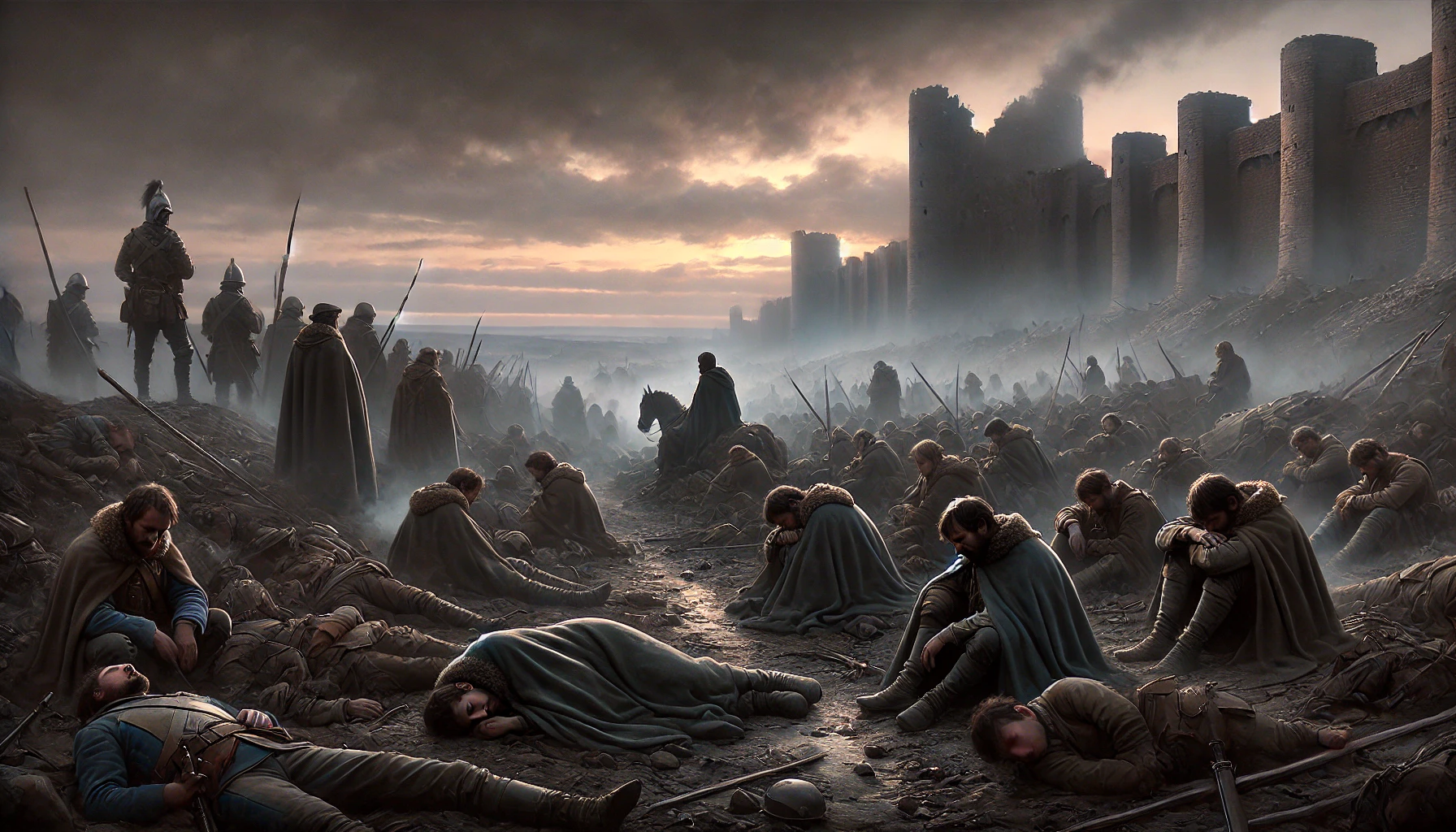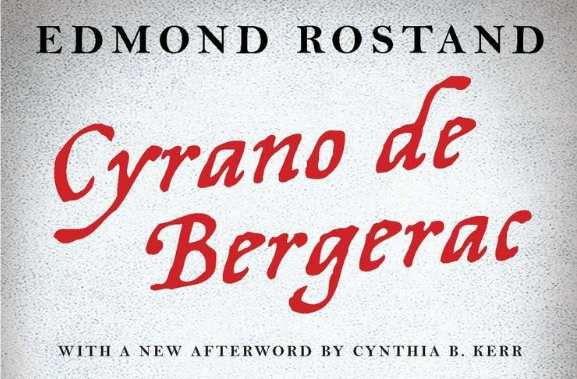Scene 4. I.
byScene 4. I. of Cyrano de Bergerac transports the audience to a grim and desolate moment in the lives of the soldiers stationed at the siege of Arras. As dawn breaks over the camp, the cadets of Gascony, including Christian, are seen sleeping in their rough mantles, temporarily escaping the harshness of their environment. The backdrop of their slumber is a somber reminder of the siege, with the towering, besieged walls of Arras faintly visible on the horizon. The stillness of the moment is broken only by the distant rumble of gunfire, a constant reminder of the ongoing battle, and causing concern among the leaders, Carbon de Castel-Jaloux and Le Bret, who worry that the noise might disturb the fragile peace of the soldiers’ rest. The tension is palpable as the leaders face the delicate balance between maintaining the men’s morale and the brutal reality that awaits them.
Carbon and Le Bret, visibly worn by the siege’s toll, embody the weariness that has gripped the entire camp. Their dialogue is quiet, emphasizing their exhaustion and the near-fatal shortage of supplies. They speak of their dire situation, knowing that even a moment’s disturbance could disrupt the soldiers’ rest, and that the slightest sound of anger or frustration could turn into something much worse. In the midst of their conversation, Carbon tries to lighten the mood, offering a wry remark that “he who sleeps, dines,” which, though lacking in substance, serves as a small measure of comfort in a world filled with hunger and deprivation. The remark reflects not only his desperation to keep up morale but also the deeper underlying sense of hopelessness that prevails among the men.
The distant gunfire serves as an ever-present reminder of the external dangers that loom over the camp, with Carbon expressing concern about the possibility of the sound waking his “sons”—the term he uses for his cadets, showing the deep care he holds for them. Despite the overwhelming weight of their situation, there is an emotional shift in the air when Cyrano’s name is mentioned. The mention of Cyrano sparks a subtle yet profound change in the atmosphere, hinting that Cyrano, with his wit and strength, may provide a much-needed distraction or uplift the spirits of the weary soldiers. Cyrano’s presence, long anticipated, is symbolized as a potential turning point that could bring a change to their morale, offering hope in a time when despair seems inevitable. His arrival signifies more than just a new character entering the scene; it represents a shift in the emotional landscape of the cadets, who look to him for leadership and inspiration in the face of overwhelming adversity.
The chapter beautifully captures the harsh realities faced by soldiers enduring a prolonged siege, while also emphasizing the importance of camaraderie and the bonds between them. Despite the deep hunger, exhaustion, and looming danger, Cyrano’s expected arrival suggests a spark of hope for the soldiers, a light in the dark of their battle-worn lives. Through the quiet yet powerful dialogue between Carbon and Le Bret, the narrative provides insight into the emotional toll the siege has taken on the men. This exchange highlights how, even in such dire conditions, there is a strong desire to maintain a sense of unity and hope. Cyrano’s anticipated arrival serves as a reminder of the power of camaraderie, humor, and shared determination in times of great adversity.
The detailed portrayal of the soldiers’ struggles and resilience offers more than just a depiction of hardship—it underscores the unwavering spirit of the men who, despite their suffering, continue to fight for honor, duty, and one another. The camaraderie displayed, even in the most difficult of times, highlights the human capacity for endurance and mutual support. As the story progresses, Cyrano’s arrival will serve as the catalyst for a new chapter in the cadets’ journey, one that brings with it the possibility of renewed strength, courage, and unity. His presence will be a beacon of resilience, reminding them of their purpose and inspiring them to face the challenges ahead. Through these moments, the chapter weaves themes of courage, solidarity, and the transformative power of leadership, showing how even the smallest gestures of care can have a profound impact on those in need of hope.
Ultimately, the chapter serves not just as a moment of reflection on the soldiers’ current circumstances but as a poignant reminder of the value of human connection and leadership in the face of extreme adversity. Cyrano’s role as a leader and symbol of resilience speaks to the idea that even in the darkest of times, there is room for bravery, humor, and unity. His arrival will remind the cadets that they are not alone in their struggles, and together, they can face the coming challenges with renewed strength and courage. The emotional complexity of the chapter, woven into the soldiers’ relationships and their shared hardships, underscores the enduring power of human connection, leadership, and the pursuit of honor, even amidst war and suffering.


